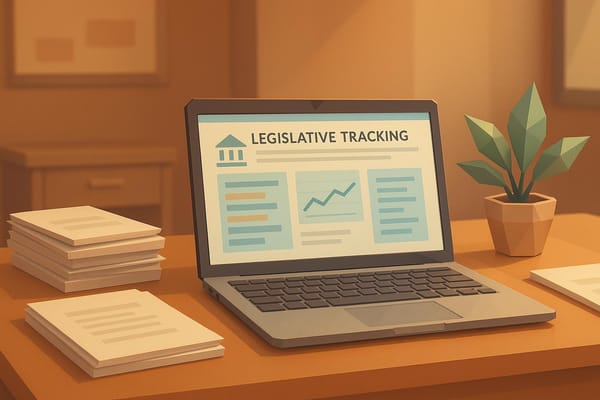New Bill Targets Sex Offenders Employment

The introduction of SB15 marks a significant step in legislative efforts to regulate the employment of sex offenders, particularly in sensitive public safety roles. As societal awareness grows regarding the complexities surrounding sex offender rehabilitation and public safety, measures such as these aim to address community concerns about safety in emergency services. The bill proposes to explicitly prohibit sex offenders from serving as first responders, a role that requires a high degree of public trust. This move reflects an ongoing commitment to protect vulnerable populations, especially children, from potential risks associated with having offenders in pivotal societal roles. In this article, we will explore the bill's main provisions, implications for current laws, views surrounding public safety, and future legal contexts.
Understanding the Bill's Provisions
SB15 specifically amends existing Alabama laws, including Sections 15-20A-13 and 15-20A-31, to incorporate stricter guidelines for sex offenders. The bill outlines clear prohibitions against employment or volunteer roles as first responders. According to Section 1(g)(1), "No adult sex offender shall accept or maintain employment or a volunteer position as a first responder." This clause extends beyond mere employment, encompassing any role that requires responding to emergencies, thereby aiming at safeguarding vulnerable community members.
Moreover, the definition of "first responder" in Section 1(g)(2) broadens the scope to include paramedics, firefighters, and emergency medical technicians. The bill not only underscores the sensitivity of these roles but also extends protective measures to juveniles under similar circumstances as outlined in Section 15-20A-31. These inclusions illustrate a robust approach to addressing public safety, especially in emergency contexts.
Impact on Current Laws and Policies
By introducing these provisions, SB15 modifies existing frameworks governing where and how sex offenders can work. Current law prohibits sex offenders from maintaining positions near schools or childcare facilities; SB15 expands the scope to include emergency services. As quoted in the bill, it states that any organization knowingly employing a sex offender in a first responder capacity is committing a Class C felony. This heightened accountability could lead to more organizations voluntarily auditing their hiring practices to circumvent potential legal issues.
Furthermore, the introduction of stricter measures echoes existing societal sentiments on public safety and protective legislation. Organizations may now have heightened legal obligations to ensure the safety of the community, especially protecting minors from individuals who have committed sex offenses.
Community Reactions and Perspectives
The reception of SB15 among community members and advocacy groups is mixed. Proponents argue that the bill is necessary for maintaining trust in emergency responders, asserting that the safety of vulnerable populations is paramount. One community member stated,
"It's essential that those serving in such critical roles are beyond reproach, particularly when it involves the safety of children."
On the other hand, critics argue that the bill may hinder rehabilitation efforts for sex offenders. By excluding them from roles that serve the community, they contend that this could further entrench offenders into isolation, ultimately diminishing their chances for reintegration into society. The balance between public safety and rehabilitation remains a contentious debate within legal and community discussions.
Legal Implications for Offenders
For offenders, the imposition of a Class C felony for violations means serious legal repercussions. As detailed in Section 1(g)(h),
"Any person who knowingly violates this section shall be guilty of a Class C felony."
This change may escalate the reluctance among employers and organizations to risk legal issues surrounding hiring decisions, leading to even fewer opportunities for rehabilitation and employment for offenders.
The implications of this bill will likely resonate well beyond its initial passage, as differing views on rehabilitation and public safety continue to evolve in the legislative arena.
The Future of Public Safety Legislation
As SB15 is set to take effect on October 1, 2025, it opens the door for future discussions on public safety legislation. The legislature's decision to tighten restrictions signifies a broader trend of increasing scrutiny over who is allowed in trusted positions that deal directly with the public.
Future proposals may also stem from the ramifications of SB15, especially as data emerges on its effectiveness and community response. Lawmakers may need to reassess the balance between protecting the public and facilitating rehabilitation pathways for offenders moving forward.
Conclusion: Reflecting on SB15's Importance
Ultimately, the introduction of SB15 offers significant changes to regulations surrounding the employment of sex offenders in Alabama. By prohibiting them from serving as first responders, the bill aims to protect community members, especially vulnerable populations such as children. While the measure stands as an affirmation of the community's demand for safety, it also poses questions regarding the rehabilitation of offenders and their reintegration into society.
As societal views evolve around these types of legislation, it is crucial to observe the outcomes of SB15, its societal impact, and how it shapes future legal approaches to public safety. Balancing community protection and rehabilitation will remain a key challenge for lawmakers in the years to come.




